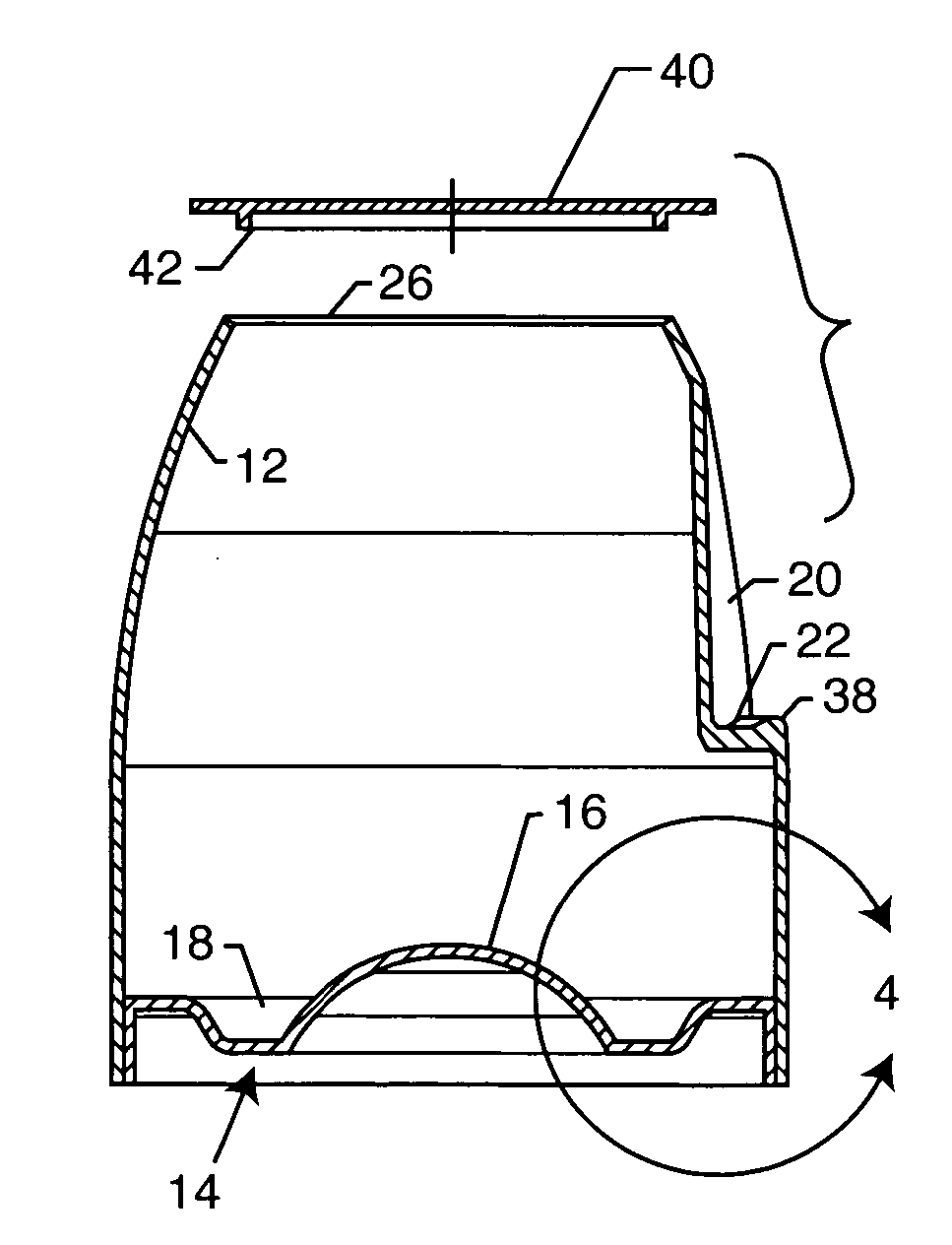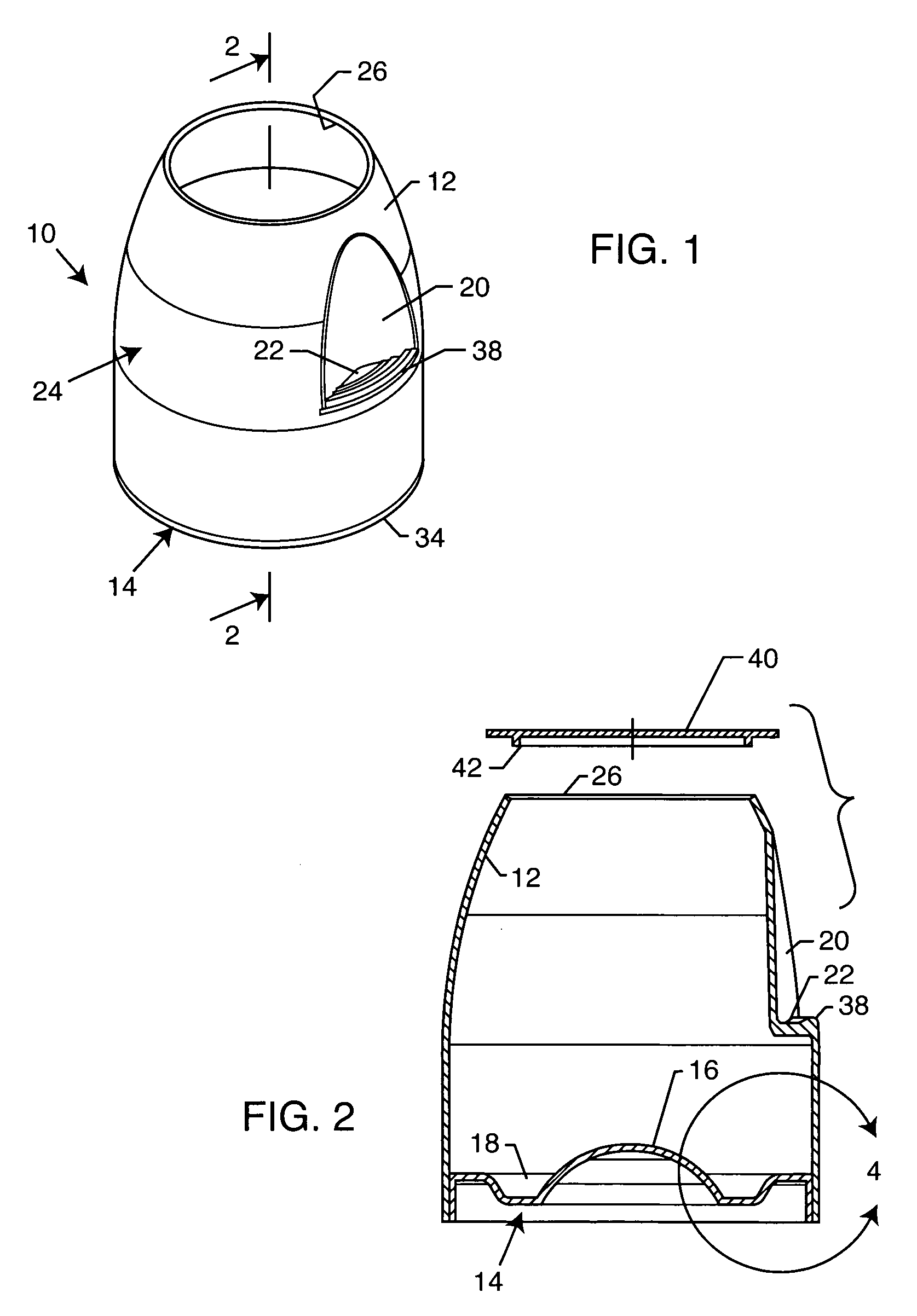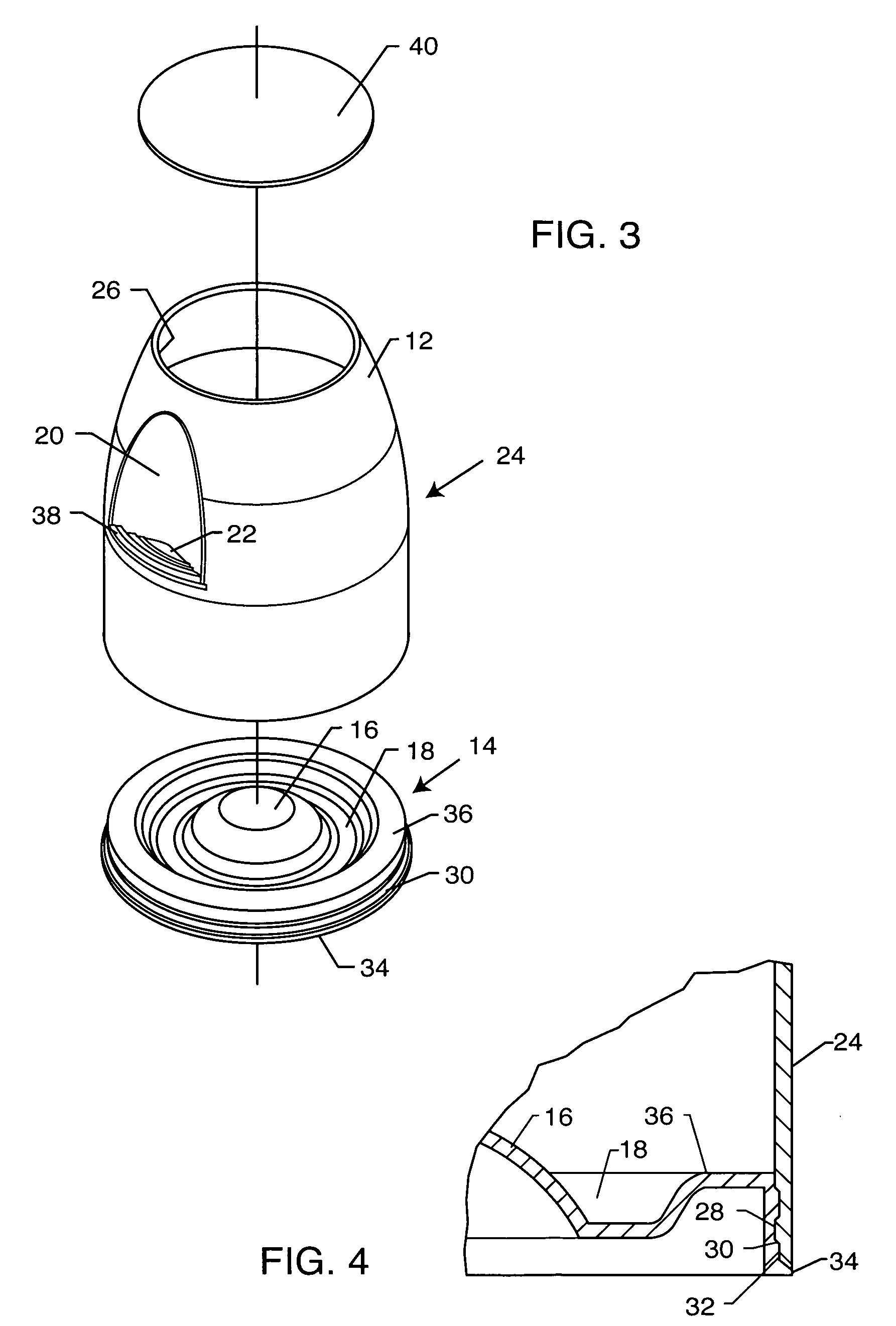Wine glass
a technology for wine glasses and wine glasses, applied in the field of wine glasses, can solve the problems of affecting the appearance, the quality of wine glasses, and the fragile nature of glass wine glasses, and achieve the effects of facilitating fingertip grasping and manipulation, facilitating close inspection of bouquet and visual characteristics, and enhancing the visual inspection of win
- Summary
- Abstract
- Description
- Claims
- Application Information
AI Technical Summary
Benefits of technology
Problems solved by technology
Method used
Image
Examples
Embodiment Construction
[0022] As shown in the exemplary drawings, a wine glass referred to generally in FIG. 1 by the reference numeral 10 is constructed from molded plastic. In one preferred form (FIGS. 1-6), the wine glass has a modular construction defined by separately formed modular components adapted for quick and easy assembly to provide a leak-proof drinking vessel (FIGS. 1-4) particularly suited for drinking and / or sampling wine, and wherein these plastic modular components are further adapted in an unassembled state for compact nested stacking (FIGS. 5-6). In an alternative preferred form (FIGS. 7-10), a modified wine glass 110 has a unitary or one-piece construction adapted for relatively compact and partially nested stacking in a filled or unfilled state.
[0023] The wine glass of the present invention is formed with a geometric shape designed for enhanced enjoyment of substantially the full range of characteristics attributable to a specific wine. More particularly, the wine glass incorporates...
PUM
 Login to View More
Login to View More Abstract
Description
Claims
Application Information
 Login to View More
Login to View More - R&D
- Intellectual Property
- Life Sciences
- Materials
- Tech Scout
- Unparalleled Data Quality
- Higher Quality Content
- 60% Fewer Hallucinations
Browse by: Latest US Patents, China's latest patents, Technical Efficacy Thesaurus, Application Domain, Technology Topic, Popular Technical Reports.
© 2025 PatSnap. All rights reserved.Legal|Privacy policy|Modern Slavery Act Transparency Statement|Sitemap|About US| Contact US: help@patsnap.com



